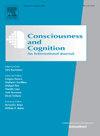在自愿内生决定过程中的部分意识
IF 2
3区 心理学
Q2 PSYCHOLOGY, EXPERIMENTAL
引用次数: 0
摘要
尽管我们感觉自己可以控制决策,但我们在执行决策前有意识地做出选择的能力仍然存在争议。最近的研究表明,我们可以预见到行动的意图,从而有可能否决即将做出的决定。然而,能否获取即将做出的决定的内容仍然存在争议。在这里,我们追踪了参与者在自由决策中进行早期商议时的神经信号。参与者在两个选项中自由选择,但有时不得不在执行前否决当前决定。实时追踪到的最初的首选方案能显著预测即将做出的选择,但大部分情况下仍处于意识之外。参与者在获取这些内容时往往表现得过于自信。相反,自信与自我启动决策的神经标记相关联,表明自信评估过程中存在定性混乱。我们的研究结果对完全代理选择的概念提出了质疑,表明了对即将做出的决定的过度认知,并为自由决策中的元认知过程提供了启示。本文章由计算机程序翻译,如有差异,请以英文原文为准。
Partial awareness during voluntary endogenous decision
Despite our feeling of control over decisions, our ability to consciously access choices before execution remains debated. Recent research reveals prospective access to intention to act, allowing potential vetoes of impending decisions. However, whether the content of impending decision can be accessed remain debated. Here we track neural signals during participants’ early deliberation in free decisions. Participants chose freely between two options but sometimes had to reject their current decision just before execution. The initially preferred option, tracked in real time, significantly predicts the upcoming choice, but remain mostly outside of conscious awareness. Participants often display overconfidence in their access to this content. Instead, confidence is associated with a neural marker of self-initiated decision, indicating a qualitative confusion in the confidence evaluation process. Our results challenge the notion of complete agency over choices, suggesting inflated awareness of forthcoming decisions and providing insights into metacognitive processes in free decision-making.
求助全文
通过发布文献求助,成功后即可免费获取论文全文。
去求助
来源期刊

Consciousness and Cognition
PSYCHOLOGY, EXPERIMENTAL-
CiteScore
4.30
自引率
8.30%
发文量
123
期刊介绍:
Consciousness and Cognition: An International Journal provides a forum for a natural-science approach to the issues of consciousness, voluntary control, and self. The journal features empirical research (in the form of regular articles and short reports) and theoretical articles. Integrative theoretical and critical literature reviews, and tutorial reviews are also published. The journal aims to be both scientifically rigorous and open to novel contributions.
 求助内容:
求助内容: 应助结果提醒方式:
应助结果提醒方式:


